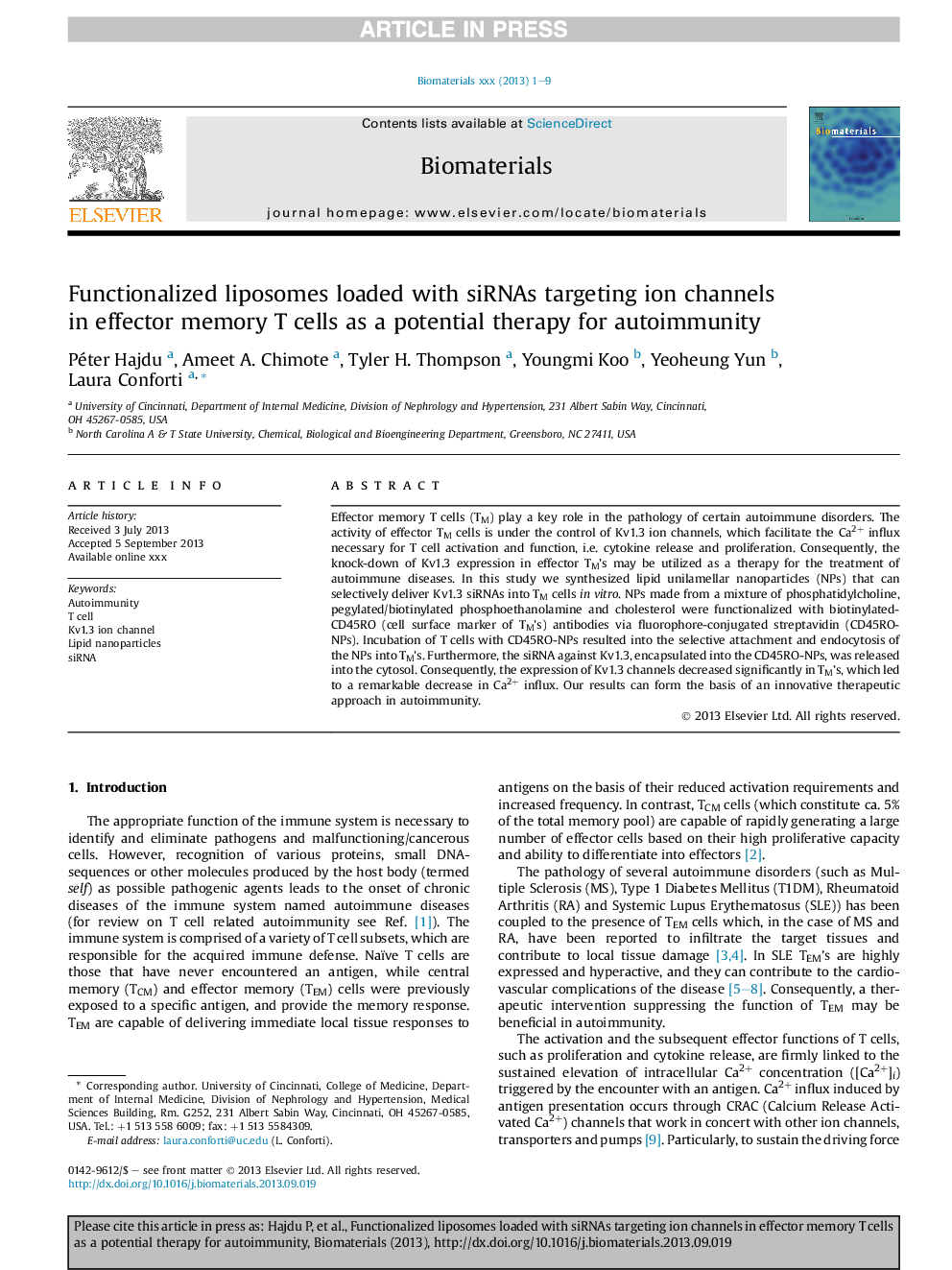| Article ID | Journal | Published Year | Pages | File Type |
|---|---|---|---|---|
| 10228175 | Biomaterials | 2013 | 9 Pages |
Abstract
Effector memory T cells (TM) play a key role in the pathology of certain autoimmune disorders. The activity of effector TM cells is under the control of Kv1.3 ion channels, which facilitate the Ca2+ influx necessary for T cell activation and function, i.e. cytokine release and proliferation. Consequently, the knock-down of Kv1.3 expression in effector TM's may be utilized as a therapy for the treatment of autoimmune diseases. In this study we synthesized lipid unilamellar nanoparticles (NPs) that can selectively deliver Kv1.3 siRNAs into TM cells in vitro. NPs made from a mixture of phosphatidylcholine, pegylated/biotinylated phosphoethanolamine and cholesterol were functionalized with biotinylated-CD45RO (cell surface marker of TM's) antibodies via fluorophore-conjugated streptavidin (CD45RO-NPs). Incubation of T cells with CD45RO-NPs resulted into the selective attachment and endocytosis of the NPs into TM's. Furthermore, the siRNA against Kv1.3, encapsulated into the CD45RO-NPs, was released into the cytosol. Consequently, the expression of Kv1.3 channels decreased significantly in TM's, which led to a remarkable decrease in Ca2+ influx. Our results can form the basis of an innovative therapeutic approach in autoimmunity.
Related Topics
Physical Sciences and Engineering
Chemical Engineering
Bioengineering
Authors
Péter Hajdu, Ameet A. Chimote, Tyler H. Thompson, Youngmi Koo, Yeoheung Yun, Laura Conforti,
